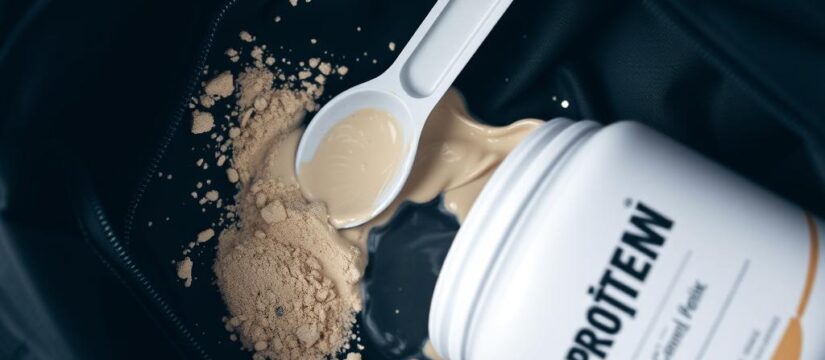
Excess Protein Shakes May Harm Health, Mouse Study Warns
- September 13, 2019
- 0 Likes
- 381 Views
- 0 Comments
New animal research suggests that “overloading” on protein supplements can backfire. When mice were fed a diet with very high levels of the branched-chain amino acids (BCAAs) found in protein powders, they experienced negative effects on mood, appetite, and lifespan medicalnewstoday.com. The study (in Nature Metabolism) reports that mice given double the normal BCAAs eventually became hugely obese and lived shorter lives. The culprit appears to be a metabolic imbalance: excess BCAAs compete with tryptophan for brain uptake, drastically reducing serotonin (the “happiness hormone”) medicalnewstoday.com. Lower brain serotonin made the mice eat far more food, leading to obesity.
Mechanism: In detail, high blood levels of leucine, valine, and isoleucine (the three BCAAs) blocked tryptophan from crossing into the brain medicalnewstoday.com. Since tryptophan is the raw material for serotonin, its depletion cut serotonin production medicalnewstoday.com. Serotonin normally helps regulate appetite. The net effect: mice on the high-BCAA diet experienced a serotonin “crash,” which drove them to overeat. Over months, they gained excessive weight and had metabolic derangements.

Key observations: The researchers, from the University of Sydney, emphasize that the balance of amino acids matters. A diet heavy in BCAAs but poor in other amino acids distorted the animals’ metabolism. The co-lead author stated, “It’s best to vary sources of protein to ensure you’re getting the best amino acid balance” medicalnewstoday.com. Notably, the mice with excessive BCAA intake did not show performance boosts; instead, they had mood and appetite issues.
Relevance to humans: While this study was in mice, it raises caution for people who gulp multiple protein shakes a day. Most people can handle normal high-protein diets, but extreme supplement use could conceivably cause similar imbalances. The study suggests that simply pouring more whey or BCAA powder on top of an already protein-rich diet might do more harm than good. In humans, factors like exercise or total diet context also play roles; further research is needed.
In summary, the findings challenge the notion that “more protein is always better.” They add to advice from some experts: that indiscriminate protein supplements may not be benign. For now, the message is moderation. Protein powders can aid muscle building, but vary your protein sources (not just one type of shake) and don’t overdo it. And if you notice mood swings or insatiable appetite on a high-protein regime, it might be worth rebalancing your diet.



Leave Your Comment